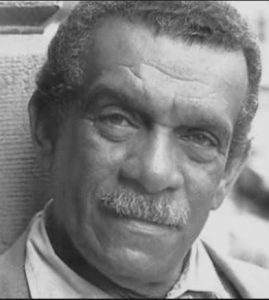Ned Hayes's Blog, page 12
February 10, 2018
Poem: For My People
For My People
Margaret Walker
For my people everywhere singing their slave songs
repeatedly: their dirges and their ditties and their blues
and jubilees, praying their prayers nightly to an
unknown god, bending their knees humbly to an
unseen power;
For my people lending their strength to the years, to the
gone years and the now years and the maybe years,
washing ironing cooking scrubbing sewing mending
hoeing plowing digging planting pruning patching
dragging along never gaining never reaping never
knowing and never understanding;
For my playmates in the clay and dust and sand of Alabama
backyards playing baptizing and preaching and doctor
and jail and soldier and school and mama and cooking
and playhouse and concert and store and hair and Miss
Choomby and company;
For the cramped bewildered years we went to school to learn
to know the reasons why and the answers to and the
people who and the places where and the days when, in
memory of the bitter hours when we discovered we
were black and poor and small and different and nobody
cared and nobody wondered and nobody understood;
For the boys and girls who grew in spite of these things to
be man and woman, to laugh and dance and sing and
play and drink their wine and religion and success, to
marry their playmates and bear children and then die
of consumption and anemia and lynching;
For my people thronging 47th Street in Chicago and Lenox
Avenue in New York and Rampart Street in New
Orleans, lost disinherited dispossessed and happy
people filling the cabarets and taverns and other
people’s pockets needing bread and shoes and milk and
land and money and something—something all our own;
For my people walking blindly spreading joy, losing time
being lazy, sleeping when hungry, shouting when
burdened, drinking when hopeless, tied, and shackled
and tangled among ourselves by the unseen creatures
who tower over us omnisciently and laugh;
For my people blundering and groping and floundering in
the dark of churches and schools and clubs and
societies, associations and councils and committees and
conventions, distressed and disturbed and deceived and
devoured by money-hungry glory-craving leeches,
preyed on by facile force of state and fad and novelty, by
false prophet and holy believer;
For my people standing staring trying to fashion a better way
from confusion, from hypocrisy and misunderstanding,
trying to fashion a world that will hold all the people,
all the faces, all the adams and eves and their countless
generations;
Let a new earth rise. Let another world be born. Let a
bloody peace be written in the sky. Let a second
generation full of courage issue forth; let a people
loving freedom come to growth. Let a beauty full of
healing and a strength of final clenching be the pulsing
in our spirits and our blood. Let the martial songs
be written, let the dirges disappear. Let a race of men now
rise and take control.

[Read more Poetry Posts]
Poem: For My People was originally published on Ned Hayes
February 8, 2018
On Writing: Becoming a Deeper Reader
A reader on the crowd-sourcing platform Quora asked a question about how to deepen their reading practices and read beyond just mere plot. Here’s a post I made in reply that provided some hints and strategies for deepening one’s reading practice and becoming more profoundly engaged with the literary world. ((Quora is top-heavy with tech-focused people, so I oriented my thoughts around technology examples.))
Here are some strategies used by English majors, as well as active readers.
1. Journal
Write down ideas, and phrases that are meaningful to you, and try to describe how they impact your life. This will help you to understand yourself and literature on a deeper level. Writers and active readers often refer to this type of book as a “commonplace book” because it is a special name for a scrapbook or set of notations about your reading.
2. Read beyond plot.
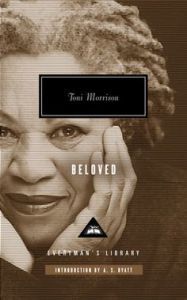 There are many books out there that have a very thin plot, but instead focus on character development language and big ideas. Read some of these and you’ll begin to see the possibilities of literature beyond plot. Toni Morrison. Cormac McCarthy, Sylvia Plath, Ray Bradbury all use language and metaphor to make points that can’t really be represented in a straightforward plot. Read Borges. Read Kafka.
There are many books out there that have a very thin plot, but instead focus on character development language and big ideas. Read some of these and you’ll begin to see the possibilities of literature beyond plot. Toni Morrison. Cormac McCarthy, Sylvia Plath, Ray Bradbury all use language and metaphor to make points that can’t really be represented in a straightforward plot. Read Borges. Read Kafka.
3. Re-read
Read again books that have been meaningful to you, and look for other meanings that you missed the first time around, or structural items that strike your fancy. If you are an astute reader, every time you re-read a book, you’ll notice new and different things. (For years, Hoffman would re-read Lord of the Rings for example. That book has metaphorical layers miles deep, and it’s not just a simple story about a hobbit.)
4. Read across genres.
Today, we compartmentalize books into “genre” categories: science-fiction, literary fiction, fantasy, romance, mystery and children’s books. These are publishing categories designed for effective marketing — they have nothing to do with the value or the meaning that is found between the covers. Would you let some junior marketing flunky tell you what to read? I didn’t think so. So don’t allow yourself to be constrained into one genre or type of reading. If you’re reading all science-fiction, read some romance. If you’re reading all literary fiction, read some fantasy. If you’re reading all fantasy, then go read some crime novels. If you only read romance, read a horror novel. It will be challenging to read outside your chosen genre, and you might not like it at first. That’s kind of the point. Find works that help you grow as a reader and expose you to new ways of storytelling. Again, these are arbitrary categories, and any great work will end up not categorized in the minds of readers like you.
5. Challenge yourself.
Read books that are classics, that do not fit into your typical modern marketing genres. Read a book by Dickens (I recommend A Tale of Two Cities). Read poetry by John Milton (Paradise Lost). Read Dante. Read some Chaucer. Read Rudyard Kipling (Kim is a great read). Read Plato (his work is surprisingly readable, even now!). Read Louisa May Alcott. Read George Eliot or Jane Austen. The reason to read these classic writers is that their vocabulary and perspective will open your eyes to new possibilities. Reading older works will also teach you that human beings speak to each other across centuries, and the same questions recur, time and again. I have a friend who was saved from suicide by reading a philosopher… who wrote in the 1500s. Writing always communicates, across time, across space, and across different experiences.
6. Keep challenging yourself.
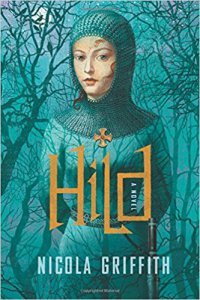
Read writers that are not of your race or gender. Read Langston Hughes, Maxine Hong Kingston, Octavia Butler, and Salman Rushdie. Read Radclyffe Hall. Read Samuel R. Delaney. Read William Burroughs. Read Sandra Cisneros. Read Katie Kitamura. Read Justin Chin. Read Min Jin Lee. Read Christine Hyung-Oak Lee. Read Nicola Griffith. Read Junot Díaz. Reading these writers teaches you about the human experience, and that it might be broader, richer and deeper than your experience (or my shallow pool of recommendations). If you are in a reading rut, and are only recalling plot, you’re reading at a low level, and reading writers who challenge cultural and gender assumptions can break you out of that mindset.
7. Engage with other readers.
Find a book group or book discussion group at a bookstore or other local venue. Read a book together, and understand that other people have different perspectives on the same books that you’ve read. Their perspectives will enrich your reading.
8. Write
 Try your hand at a short story or poem. Even if you’re terrible – especially if you are terrible –this activity will help you understand some of the decisions that go into crafting a piece of prose or poetry. You can begin to see the skeleton underneath the flesh of the words.
Try your hand at a short story or poem. Even if you’re terrible – especially if you are terrible –this activity will help you understand some of the decisions that go into crafting a piece of prose or poetry. You can begin to see the skeleton underneath the flesh of the words.
9. Read critics.
Read what other people have to say about contemporary writing. By doing this, you are entering a decades long (sometimes centuries long) conversation about a piece of writing, a book series, or the intentions of a writer.
10. Write your own thoughts down and share them.
If you are brave, you can even add your own voice to this critical conversation. Keep in mind that reading a book critic and engaging with them is to be one yourself, so your opinion should be factually supported, and should be substantive. Be willing to engage thoughtfully with people who disagree with you. Find a rationale for your ideas. Most online argumentation today is shallow raw opinion without deep thinking. Most people who write seriously about books do the opposite: they go deep and look for meaningful interactions with big ideas. Be worthy of this conversation.
A literary update from NedNote.com
Readers can find my books at these bookstores:



On Writing: Becoming a Deeper Reader was originally published on Ned Hayes
February 5, 2018
Bookstores: Auntie's Books
— Read my books at Auntie’s —
I moved from California to the wilds of Spokane Washington for my undergraduate degree. Honestly, I think it was the farthest I could get from home and still remain in the same time zone. It was my first time living away from home, college was often challenging, the people were new and different and Spokane could be a cold and lonely place, especially in downtown where the winds blew chill between the squat skyscrapers and the Spokane River froze in the winter.
Auntie’s Bookstore in downtown Spokane was one of my refuges. There were other bookstores in Spokane, most of them used bookstores, but Auntie’s was the best full-service new bookstore I’d seen since
Vroman’s in Pasadena. Back then, Auntie’s was located in a building that was formerly the Spokane Flour Mill and had a long floor plan with a low ceiling. A slightly funky basement was filled with used books.
 Since I was a college student, I was too poor to buy new books. So I spent hours in the bookstore, sitting on the floor by the hardcover new releases, cracking the hardcovers and reading the deckled pages with pleasure. I’d leave with a few tattered paperbacks in hand, but I always kept up on the best American and world literature I could find at Auntie’s. I read many of the emerging classic contemporary writers sitting in a chair or on the floor at Auntie’s. I remember discovering Annie Dillard at Auntie’s, as well as W.P. Kinsella and Joan Didion.
Since I was a college student, I was too poor to buy new books. So I spent hours in the bookstore, sitting on the floor by the hardcover new releases, cracking the hardcovers and reading the deckled pages with pleasure. I’d leave with a few tattered paperbacks in hand, but I always kept up on the best American and world literature I could find at Auntie’s. I read many of the emerging classic contemporary writers sitting in a chair or on the floor at Auntie’s. I remember discovering Annie Dillard at Auntie’s, as well as W.P. Kinsella and Joan Didion.
I probably even encountered Oliver Sacks’s inimitable work at Auntie’s. I didn’t know that in the years to come, when I wrote The Eagle Tree, I’d befriend author and writer Steve Silberman, who was close friends with Oliver Sacks before his death. Back then, I didn’t know how close I’d be to other writers of renown. For me, writers like that were a distant country, a heaven to someday strive to reach.
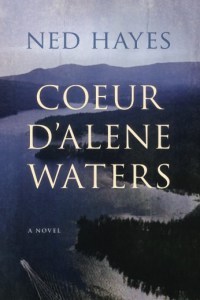 A few years later, I taught myself the writing craft on my first published novel, Coeur d’Alene Waters. I set the novel in northern Idaho, where I’d lived for some summers and in Spokane, which I knew well. My characters traveled back and forth between Coeur d’Alene, Idaho and Spokane Washington. In honor of the bookstore I knew and loved, I felt like the least I could do was to set a scene at Auntie’s, the bookstore I knew so well. (My main character is not a reader, but his wife was a huge fan of Auntie’s, and that’s how I fit the bookstore into the novel.)
A few years later, I taught myself the writing craft on my first published novel, Coeur d’Alene Waters. I set the novel in northern Idaho, where I’d lived for some summers and in Spokane, which I knew well. My characters traveled back and forth between Coeur d’Alene, Idaho and Spokane Washington. In honor of the bookstore I knew and loved, I felt like the least I could do was to set a scene at Auntie’s, the bookstore I knew so well. (My main character is not a reader, but his wife was a huge fan of Auntie’s, and that’s how I fit the bookstore into the novel.)
 I visited Spokane several times over the years since I left the region, and each time I made it a point to visit Auntie’s. In the mid-1990s, I was surprised to see the Spokane Flour Mill location dark and shuttered and I was a bit upset to find my favorite place missing. Then I discovered that Auntie’s had merely moved to a new and larger location — right down the street on West Main. In this new location, Auntie’s now had two levels above ground, and a new spacious arena in which to display many more books. The bookstore was now airy and open and wonderfully well-lit. This updated Auntie’s was definitely new and improved!
I visited Spokane several times over the years since I left the region, and each time I made it a point to visit Auntie’s. In the mid-1990s, I was surprised to see the Spokane Flour Mill location dark and shuttered and I was a bit upset to find my favorite place missing. Then I discovered that Auntie’s had merely moved to a new and larger location — right down the street on West Main. In this new location, Auntie’s now had two levels above ground, and a new spacious arena in which to display many more books. The bookstore was now airy and open and wonderfully well-lit. This updated Auntie’s was definitely new and improved!
The literary cycle came full circle for me in 2014, when I was able to appear on an author panel and do a signing and reading in-person at Auntie’s. It was exciting to see my books displayed on the shelf at Auntie’s and to see readers avidly pick them up and read through them, in much the same way that I had once read books at Auntie’s myself in my undergraduate days! Here’s the Auntie’s Bookstore listing for one of the events in 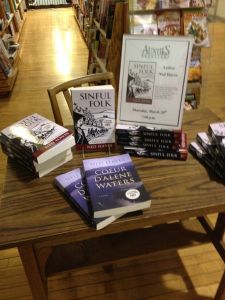 Spokane. I met several other authors at Auntie’s on the writing panel as well, and we were able to mutually support our book launches that year.
Spokane. I met several other authors at Auntie’s on the writing panel as well, and we were able to mutually support our book launches that year.
I’m so glad I encountered Auntie’s in college, and I recommend the bookstore to anyone visiting the Spokane region.
Auntie’s Books is one of my literary touchstones, and I’m happy to share that bookstore experience with my readers! Enjoy!
Find my books at Auntie’s

[Read more BOOKSTORE POSTS]
Pinterest – Ned Hayes Bookstore Board
Bookstores: Auntie’s Books was originally published on Ned Hayes
Poem: Middle Passage
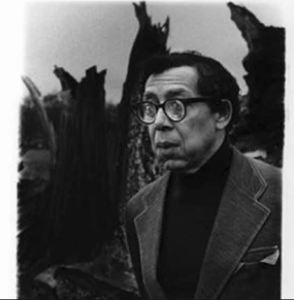 Middle Passage
Middle PassageRobert Hayden
I
Jesús, Estrella, Esperanza, Mercy:
Sails flashing to the wind like weapons,
sharks following the moans the fever and the dying;
horror the corposant and compass rose.
Middle Passage:
voyage through death
to life upon these shores.
“10 April 1800—
Blacks rebellious. Crew uneasy. Our linguist says
their moaning is a prayer for death,
ours and their own. Some try to starve themselves.
Lost three this morning leaped with crazy laughter
to the waiting sharks, sang as they went under.”
Desire, Adventure, Tartar, Ann:
Standing to America, bringing home
black gold, black ivory, black seed.
Deep in the festering hold thy father lies,
of his bones New England pews are made,
those are altar lights that were his eyes.
Jesus Saviour Pilot Me
Over Life’s Tempestuous Sea
We pray that Thou wilt grant, O Lord,
safe passage to our vessels bringing
heathen souls unto Thy chastening.
Jesus Saviour
“8 bells. I cannot sleep, for I am sick
with fear, but writing eases fear a little
since still my eyes can see these words take shape
upon the page & so I write, as one
would turn to exorcism. 4 days scudding,
but now the sea is calm again. Misfortune
follows in our wake like sharks (our grinning
tutelary gods). Which one of us
has killed an albatross? A plague among
our blacks—Ophthalmia: blindness—& we
have jettisoned the blind to no avail.
It spreads, the terrifying sickness spreads.
Its claws have scratched sight from the Capt.‘s eyes
& there is blindness in the fo’c’sle
& we must sail 3 weeks before we come
to port.”
What port awaits us, Davy Jones’
or home? I’ve heard of slavers drifting, drifting,
playthings of wind and storm and chance, their crews
gone blind, the jungle hatred
crawling up on deck.
Thou Who Walked On Galilee
“Deponent further sayeth The Bella J
left the Guinea Coast
with cargo of five hundred blacks and odd
for the barracoons of Florida:
“That there was hardly room ’tween-decks for half
the sweltering cattle stowed spoon-fashion there;
that some went mad of thirst and tore their flesh
and sucked the blood:
“That Crew and Captain lusted with the comeliest
of the savage girls kept naked in the cabins;
that there was one they called The Guinea Rose
and they cast lots and fought to lie with her:
“That when the Bo’s’n piped all hands, the flames
spreading from starboard already were beyond
control, the negroes howling and their chains
entangled with the flames:
“That the burning blacks could not be reached,
that the Crew abandoned ship,
leaving their shrieking negresses behind,
that the Captain perished drunken with the wenches:
“Further Deponent sayeth not.”
Pilot Oh Pilot Me
II
Aye, lad, and I have seen those factories,
Gambia, Rio Pongo, Calabar;
have watched the artful mongos baiting traps
of war wherein the victor and the vanquished
Were caught as prizes for our barracoons.
Have seen the nigger kings whose vanity
and greed turned wild black hides of Fellatah,
Mandingo, Ibo, Kru to gold for us.
And there was one—King Anthracite we named him—
fetish face beneath French parasols
of brass and orange velvet, impudent mouth
whose cups were carven skulls of enemies:
He’d honor us with drum and feast and conjo
and palm-oil-glistening wenches deft in love,
and for tin crowns that shone with paste,
red calico and German-silver trinkets
Would have the drums talk war and send
his warriors to burn the sleeping villages
and kill the sick and old and lead the young
in coffles to our factories.
Twenty years a trader, twenty years,
for there was wealth aplenty to be harvested
from those black fields, and I’d be trading still
but for the fevers melting down my bones.
III
Shuttles in the rocking loom of history,
the dark ships move, the dark ships move,
their bright ironical names
like jests of kindness on a murderer’s mouth;
plough through thrashing glister toward
fata morgana’s lucent melting shore,
weave toward New World littorals that are
mirage and myth and actual shore.
Voyage through death,
voyage whose chartings are unlove.
A charnel stench, effluvium of living death
spreads outward from the hold,
where the living and the dead, the horribly dying,
lie interlocked, lie foul with blood and excrement.
Deep in the festering hold thy father lies,
the corpse of mercy rots with him,
rats eat love’s rotten gelid eyes.
But, oh, the living look at you
with human eyes whose suffering accuses you,
whose hatred reaches through the swill of dark
to strike you like a leper’s claw.
You cannot stare that hatred down
or chain the fear that stalks the watches
and breathes on you its fetid scorching breath;
cannot kill the deep immortal human wish,
the timeless will.
“But for the storm that flung up barriers
of wind and wave, The Amistad, señores,
would have reached the port of Príncipe in two,
three days at most; but for the storm we should
have been prepared for what befell.
Swift as the puma’s leap it came. There was
that interval of moonless calm filled only
with the water’s and the rigging’s usual sounds,
then sudden movement, blows and snarling cries
and they had fallen on us with machete
and marlinspike. It was as though the very
air, the night itself were striking us.
Exhausted by the rigors of the storm,
we were no match for them. Our men went down
before the murderous Africans. Our loyal
Celestino ran from below with gun
and lantern and I saw, before the cane-
knife’s wounding flash, Cinquez,
that surly brute who calls himself a prince,
directing, urging on the ghastly work.
He hacked the poor mulatto down, and then
he turned on me. The decks were slippery
when daylight finally came. It sickens me
to think of what I saw, of how these apes
threw overboard the butchered bodies of
our men, true Christians all, like so much jetsam.
Enough, enough. The rest is quickly told:
Cinquez was forced to spare the two of us
you see to steer the ship to Africa,
and we like phantoms doomed to rove the sea
voyaged east by day and west by night,
deceiving them, hoping for rescue,
prisoners on our own vessel, till
at length we drifted to the shores of this
your land, America, where we were freed
from our unspeakable misery. Now we
demand, good sirs, the extradition of
Cinquez and his accomplices to La
Havana. And it distresses us to know
there are so many here who seem inclined
to justify the mutiny of these blacks.
We find it paradoxical indeed
that you whose wealth, whose tree of liberty
are rooted in the labor of your slaves
should suffer the august John Quincy Adams
to speak with so much passion of the right
of chattel slaves to kill their lawful masters
and with his Roman rhetoric weave a hero’s
garland for Cinquez. I tell you that
we are determined to return to Cuba
with our slaves and there see justice done. Cinquez—
or let us say ‘the Prince’—Cinquez shall die.”
The deep immortal human wish,
the timeless will:
Cinquez its deathless primaveral image,
life that transfigures many lives.
Voyage through death
to life upon these shores.

[Read more Poetry Posts]
Copyright © 1962, 1966 by Robert Hayden, from Collected Poems of Robert Hayden by Robert Hayden, edited by Frederick Glaysher.
Poem: Middle Passage was originally published on Ned Hayes
January 31, 2018
Poem: Lyric for a day like today
Claudia Castro Luna becomes Washington’s next poet laureate on February 1, 2018.
She was the Seattle Civic Poet from 2015-2017.
Her new book Killing Marias: A Poem for Multiple Voices is now available.
You can follow her on Twitter at @ClaudiaC_L
Lyric for a day like today

Imagine every spoken word
as part of a very large scaffold
that when we hear “hold” and “please”
steel decks, posts and leveling jacks
shift this way and that
and from all the words repeated
— everyday the same —
the shape of the city emerges
.
Imagine this city as the external
machination of what we think
which is what we say
cranes swivel, tunnels get built
businesses fold, new ones thrive
restaurants open, schools close
we speak the city and it becomes
a creation assured by words
.

Yet along the avenues nothing changes
dogs still bark across fences
sisters still hold grief
and laughter in their cupped hands
unrevised lexicons frame
the structures that support us
some try, and do, use an alternate syntax
but lateral loads resist
.
We talk the city
as we boast so is the map drawn
we make and discard, taste and chew
forks clink against fine porcelain
hope shoots from shadows
roses push past thorns
after rain a rainbow, in its afterglow
unbearable things both dwindle and grow
Poem used courtesy of Cascadia Magazine
Photo credit: Space Needle under construction, 1961. Photo courtesy Seattle Municipal Archives, CC BY-SA 2.0.
Poem: Lyric for a day like today was originally published on Ned Hayes
January 28, 2018
Poem: Phenomenal Woman
Phenomenal Woman
Maya Angelou
 Pretty women wonder where my secret lies.
Pretty women wonder where my secret lies.
I’m not cute or built to suit a fashion model’s size
But when I start to tell them,
They think I’m telling lies.
I say,
It’s in the reach of my arms
The span of my hips,
The stride of my step,
The curl of my lips.
I’m a woman
Phenomenally.
Phenomenal woman,
That’s me.
I walk into a room
Just as cool as you please,
And to a man,
The fellows stand or
Fall down on their knees.
Then they swarm around me,
A hive of honey bees.
I say,
It’s the fire in my eyes,
And the flash of my teeth,
The swing in my waist,
And the joy in my feet.
I’m a woman
Phenomenally.
Phenomenal woman,
That’s me.
Men themselves have wondered
What they see in me.
They try so much
But they can’t touch
My inner mystery.
When I try to show them
They say they still can’t see.
I say,
It’s in the arch of my back,
The sun of my smile,
The ride of my breasts,
The grace of my style.
I’m a woman
Phenomenally.
Phenomenal woman,
That’s me.
Now you understand
Just why my head’s not bowed.
I don’t shout or jump about
Or have to talk real loud.
When you see me passing
It ought to make you proud.
I say,
It’s in the click of my heels,
The bend of my hair,
the palm of my hand,
The need of my care,
‘Cause I’m a woman
Phenomenally.
Phenomenal woman,
That’s me.
[Read more Poetry Posts]
Poem: Phenomenal Woman was originally published on Ned Hayes
January 25, 2018
Bookstores: Vroman's in Pasadena
 After living overseas for many years, one of my earliest memories of an American bookstore was in the 1980s, when I first walked into Vroman’s Bookstore in Pasadena California. The store was a revelation to me — a clean well-lighted place where books were arranged like jewels on shelves, well-read attendants who seemed like upscale librarian/sorcerers to my wondering eyes, and — best of all — a children’s reading section that had all of my favorites readily accessible in untouched hardcover editions. I’d never seen such a magical place where everyone knew how important books were in my life, and uttered their admiration for the same books in quiet loving tones. Vroman’s is southern California’s oldest and largest bookstore, but all I knew at that time was that I had landed in heaven.
After living overseas for many years, one of my earliest memories of an American bookstore was in the 1980s, when I first walked into Vroman’s Bookstore in Pasadena California. The store was a revelation to me — a clean well-lighted place where books were arranged like jewels on shelves, well-read attendants who seemed like upscale librarian/sorcerers to my wondering eyes, and — best of all — a children’s reading section that had all of my favorites readily accessible in untouched hardcover editions. I’d never seen such a magical place where everyone knew how important books were in my life, and uttered their admiration for the same books in quiet loving tones. Vroman’s is southern California’s oldest and largest bookstore, but all I knew at that time was that I had landed in heaven.

In many regards, I grew up as a reader at Vroman’s. I found succor in their shelves and wonder in their book recommendations. In later years, as I frequented second-hand bookstores and went deep into academic tomes, I continued to come back to Vroman’s to continue to relish the experience of books as a pleasure, not a burden or a learning.
The characteristic that is often forgotten in the modern debate over how one buys books — or even what format one reads in — is the fact that the act of being a reader automatically invites you into a community of readers, and bookstores that embrace that reality and further that community become focal points for the reading community. It’s not just about buying books, but about building community.
Vroman’s has never forgotten that truth. In later years, after college, when I moved back to California and began teaching kids on the spectrum (and began thinking about writing my novel The Eagle Tree), I recommended the Vroman’s experience to my students, and it was exciting to see early readers share that singular early experience of walking into the same bookstore I’d loved and experiencing heaven all over again.
In a deeper way, I also came to appreciate Vroman’s nurturance of the bookish community, as I participated in reading groups at the bookstore, and met other readers in my community. I was now finding my reading companions as an adult, again, thanks to Vroman’s gentle guidance. I particularly remember a reading group discussion of a new book by my favorite poet — Mark Strand. Vroman’s book club meeting about Dark Harbor provoked a deep and thoughtful discussion.
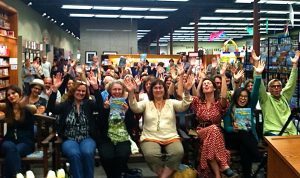
I also enjoyed the many literary readings at Vroman’s, and I was excited to see that recently Vroman’s began to embrace indie bestselling authors as well, like my friend (and fellow medieval writer) Kathryn Le Veque whose readings and signings have been stellar successes. Kudos to Vroman’s for embracing the future of author-led publishing!
Vroman’s has a storied history. The original bookstore was founded in 1894 by Adam Clark Vroman. Born in 1856 in La Salle, Illinois, Mr. Vroman moved to Pasadena, California in the late 1800s. Mr. Vroman loved books and loved giving back to his community. He helped to rescue some of the old Franciscan missions from decay, helped establish the Southwest Museum (now part of the Autry Museum), and he was a great supporter of the Pasadena Public Library. When Mr. Vroman died in 1916, he left the bookstore to longtime employees, one of whom was the great grandfather of the current owner.
 Vroman’s Bookstore holds an important place in Southern California’s history. For many years, Vroman’s was the largest bookstore west of the Mississippi, and it continues to be the oldest and largest independent bookstore in Southern California. During World War II, Vroman’s donated and delivered books to Japanese Americans interned at nearby camps, returning on several occasions despite being fired upon by camp guards!
Vroman’s Bookstore holds an important place in Southern California’s history. For many years, Vroman’s was the largest bookstore west of the Mississippi, and it continues to be the oldest and largest independent bookstore in Southern California. During World War II, Vroman’s donated and delivered books to Japanese Americans interned at nearby camps, returning on several occasions despite being fired upon by camp guards!
Now that I have lived far away from California for many years, I still look back on my early experience at Vroman’s with fondness and with a bookish nostalgia. Bookstores in my mind are always mentally judged against that early Vroman’s experience. Today, it gives me great pleasure to know that you can find my books on Vroman’s shelves.
If you’re in southern California for the Rose Parade, visiting Disneyland or for any other reason, I’d encourage you to enjoy Vroman’s multiple locations. Through the years, Vroman’s has continued to be an independently owned family business, now consisting of two Vroman’s locations, and two Vroman’s boutiques located at LAX airport. Of course, all their books are also available online at Vroman’s as well.
Vroman’s Bookstore is one of my literary touchstones, and I’m happy to share that bookstore experience with readers like you! Enjoy!
[Read more BOOKSTORE POSTS]
Pinterest – Ned Hayes Bookstore Board
Bookstores: Vroman’s in Pasadena was originally published on Ned Hayes
January 23, 2018
Ursula Le Guin
Posted on the day Ursula Le Guin died
October 21, 1929 – January 22, 2018
I’m saddened to hear of the passing of Ursula Le Guin. In honor of her legacy, here’s an excerpt from acceptance speech when she received the National Book Foundation’s Medal for Distinguished Contribution to American Letters at the 65th National Book Awards on November 19, 2014. And below this video is an excerpt from one of her seminal fantasy books — A Wizard of Earthsea.
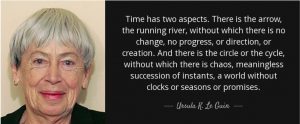
A Wizard of Earthsea
Ursula Le Guin
The island of Gont, a single mountain that lifts its peak a mile above the storm-racked Northeast Sea, is a land famous for wizards. From the towns in its high valleys and the ports on its dark narrow bays many a Gontishman has gone forth to serve the Lords of the Archipelago in their cities as wizard or mage, or, looking for adventure, to wander working magic from isle to isle of all Earthsea. Of these some say the greatest, and surely the greatest voyager, was the man called Sparrowhawk, who in his day became both dragonlord and Archmage. His life is told of in the Deed of Ged and in many songs, but this is a tale of the time before his fame, before the songs were made.
He was born in a lonely village called Ten Alders, high on the mountain at the head of the Northward Vale. Below the village the pastures and plow lands of the Vale slope downward level below level towards the sea, and other towns lie on the bends of the River Ar; above the village only forest rises ridge behind ridge to the stone and snow of the heights.
The name he bore as a child, Duny, was given him by his mother, and that and his life were all she could give him, for she died before he was a year old. His father, the bronze-smith of the village, was a grim unspeaking man, and since Duny’s six brothers were older than he by many years and went one by one from home to farm the land or sail the sea or work as smith in other towns of the Northward Vale, there was no one to bring the child up in tenderness. He grew wild, a thriving weed, a tall, quick boy, loud and proud and full of temper. With the few other children of the village he herded goats on the steep meadows above the river-springs; and when he was strong enough to push and pull the long bellows-sleeves, his father made him work as smith’s boy, at a high cost in blows and whippings. There was not much work to be got out of Duny. He was always off and away; roaming deep in the forest, swimming in the pools of the River Ar that like all Gontish rivers runs very quick and cold, or climbing by cliff and scarp to the heights above the forest, from which he could see the sea, that broad northern ocean where, past Perregal, no islands are.
A sister of his dead mother lived in the village. She had done what was needful for him as a baby, but she had business of her own and once he could look after himself at all she paid no more heed to him. But one day when the boy was seven years old, untaught and knowing nothing of the arts and powers that are in the world, he heard his aunt crying out words to a goat which had jumped up onto the thatch of a hut and would not come down: but it came jumping when she cried a certain rhyme to it. Next day herding the longhaired goats on the meadows of High Fall, Duny shouted to them the words he had heard, not knowing their use or meaning or what kind of words they were:
Noth hierth malk man
hiolk han merth han!
He yelled the rhyme aloud, and the goats came to him. They came very quickly, all of them together, not making any sound. They looked at him out of the dark slot in their yellow eyes.
Duny laughed and shouted it out again, the rhyme that gave him power over the goats. They came closer, crowding and pushing round him. All at once he felt afraid of their thick, ridged horns and their strange eyes and their strange silence. He tried to get free of them and to run away. The goats ran with him keeping in a knot around him, and so they came charging down into the village at last, all the goats going huddled together as if a rope were pulled tight round them, and the boy in the midst of them weeping and bellowing. Villagers ran from their houses to swear at the goats and laugh at the boy. Among them came the boy’s aunt, who did not laugh. She said a word to the goats, and the beasts began to bleat and browse and wander, freed from the spell.
“Come with me,” she said to Duny.
She took him into her hut where she lived alone. She let no child enter there usually, and the children feared the place. It was low and dusky, windowless, fragrant with herbs that hung drying from the crosspole of the roof, mint and moly and thyme, yarrow and rushwash and paramal, kingsfoil, clovenfoot, tansy and bay. There his aunt sat crosslegged by the firepit, and looking sidelong at the boy through the tangles of her black hair she asked him what he had said to the goats, and if he knew what the rhyme was. When she found that he knew nothing, and yet had spellbound the goats to come to him and follow him, then she saw that he must have in him the makings of power.
As her sister’s son he had been nothing to her, but now she looked at him with a new eye. She praised him, and told him she might teach him rhymes he would like better, such as the word that makes a snail look out of its shell, or the name that calls a falcon down from the sky.
“Aye, teach me that name!” he said, being clear over the fright the goats had given him, and puffed up with her praise of his cleverness.
The witch said to him, “You will not ever tell that word to the other children, if I teach it to you.”
“I promise.”
She smiled at his ready ignorance. “Well and good. But I will bind your promise. Your tongue will be stilled until I choose to unbind it, and even then, though you can speak, you will not be able to speak the word I teach you where another person can hear it. We must keep the secrets of our craft.”
“Good,” said the boy, for he had no wish to tell the secret to his playmates, liking to know and do what they knew not and could not.
He sat still while his aunt bound back her uncombed hair, and knotted the belt of her dress, and again sat cross-legged throwing handfuls of leaves into the firepit, so that a smoke spread and filled the darkness of the hut. She began to sing. Her voice changed sometimes to low or high as if another voice sang through her, and the singing went on and on until the boy did not know if he waked or slept, and all the while the witch’s old black dog that never barked sat by him with eyes red from the smoke. Then the witch spoke to Duny in a tongue he did not understand, and made him say with her certain rhymes and words until the enchantment came on him and held him still.
“Speak!” she said to test the spell.
The boy could not speak, but he laughed.
Then his aunt was a little afraid of his strength, for this was as strong a spell as she knew how to weave: she had tried not only to gain control of his speech and silence, but to bind him at the same time to her service in the craft of sorcery. Yet even as the spell bound him, he had laughed. She said nothing. She threw clear water on the fire till the smoke cleared away, and gave the boy water to drink, and when the air was clear and he could speak again she taught him the true name of the falcon, to which the falcon must come.
This was Duny’s first step on the way he was to follow all his life, the way of magery, the way that led him at last to hunt a shadow over land and sea to the lightless coasts of death’s kingdom. But in those first steps along the way, it seemed a broad, bright road.
When he found that the wild falcons stooped down to him from the wind when he summoned them by name, lighting with a thunder of wings on his wrist like the hunting-birds of a prince, then he hungered to know more such names and came to his aunt begging to learn the name of the sparrowhawk and the osprey and the eagle. To earn the words of power he did all the witch asked of him and learned of her all she taught, though not all of it was pleasant to do or know. There is a saying on Gont, Weak as woman’s magic, and there is another saying, Wicked as woman’s magic. Now the witch of Ten Alders was no black sorceress, nor did she ever meddle with the high arts or traffic with Old Powers; but being an ignorant woman among ignorant folk, she often used her crafts to foolish and dubious ends. She knew nothing of the Balance and the Pattern which the true wizard knows and serves, and which keep him from using his spells unless real need demands. She had a spell for every circumstance, and was forever weaving charms. Much of her lore was mere rubbish and humbug, nor did she know the true spells from the false. She knew many curses, and was better at causing sickness, perhaps, than at curing it. Like any village witch she could brew up a love-potion, but there were other, uglier brews she made to serve men’s jealousy and hate. Such practices, however, she kept from her young prentice, and as far as she was able she taught him honest craft.
At first all his pleasure in the art-magic was, childlike, the power it gave him over bird and beast, and the knowledge of these. And indeed that pleasure stayed with him all his life. Seeing him in the high pastures often with a bird of prey about him, the other children called him Sparrowhawk, and so he came by the name that he kept in later life as his use-name, when his true-name was not known.
As the witch kept talking of the glory and the riches and the great power over men that a sorcerer could gain, he set himself to learn more useful lore. He was very quick at it. The witch praised him and the children of the village began to fear him, and he himself was sure that very soon he would become great among men. So he went on from word to word and from spell to spell with the witch till he was twelve years old and had learned from her a great part of what she knew: not much, but enough for the witchwife of a small village, and more than enough for a boy of twelve. She had taught him all her lore in herbals and healing, and all she knew of the crafts of finding, binding, mending, unsealing and revealing. What she knew of chanters’ tales and the great Deeds she had sung him, and all the words of the True Speech that she had learned from the sorcerer that taught her, she taught again to Duny. And from weatherworkers and wandering jugglers who went from town to town of the Northward Vale and the East Forest he had learned various tricks and pleasantries, spells of Illusion. It was with one of these light spells that he first proved the great power that was in him.
In those days the Kargad Empire was strong. Those are four great lands that lie between the Northern and the Eastern Reaches: Karego-At, Atuan, Hur-at-Hur, Atnini. The tongue they speak there is not like any spoken in the Archipelago or the other Reaches, and they are a savage people, white-skinned, yellow-haired, and fierce, liking the sight of blood and the smell of burning towns. Last year they had attacked the Torikles and the strong island Torheven, raiding in great force in fleets of red-sailed ships. News of this came north to Gont, but the Lords of Gont were busy with their piracy and paid small heed to the woes of other lands. Then Spevy fell to the Kargs and was looted and laid waste, its people taken as slaves, so that even now it is an isle of ruins. In lust of conquest the Kargs sailed next to Gont, coming in a host, thirty great longships, to East Port. They fought through that town, took it, burned it; leaving their ships under guard at the mouth of the River Ar they went up the Vale wrecking and looting, slaughtering cattle and men. As they went they split into bands, and each of these bands plundered where it chose. Fugitives brought warning to the villages of the heights. Soon the people of Ten Alders saw smoke darken the eastern sky, and that night those who climbed the High Fall looked down on the Vale all hazed and red-streaked with fires where fields ready for harvest had been set ablaze, and orchards burned, the fruit roasting on the blazing boughs, and barns and farmhouses smoldered in ruin.
Some of the villagers fled up the ravines and hid in the forest, and some made ready to fight for their lives, and some did neither but stood about lamenting. The witch was one who fled, hiding alone in a cave up on the Kapperding Scarp and sealing the cave-mouth with spells. Duny’s father the bronze-smith was one who stayed, for he would not leave his smelting-pit and forge where he had worked for fifty years. All that night he labored beating up what ready metal he had there into spearpoints, and others worked with him binding these to the handles of hoes and rakes, there being no time to make sockets and shaft them properly. There had been no weapons in the village but hunting bows and short knives, for the mountain folk of Gont are not warlike; it is not warriors they are famous for, but goat-thieves, sea-pirates, and wizards.
With sunrise came a thick white fog, as on many autumn mornings in the heights of the island. Among their huts and houses down the straggling street of Ten Alders the villagers stood waiting with their hunting bows and new-forged spears, not knowing whether the Kargs might be far off or very near, all silent, all peering into the fog that hid shapes and distances and dangers from their eyes.
With them was Duny. He had worked all night at the forge-bellows, pushing and pulling the two long sleeves of goathide that fed the fire with a blast of air. Now his arms so ached and trembled from that work that he could not hold out the spear he had chosen. He did not see how he could fight or be of any good to himself or the villagers. It rankled at his heart that he should die, spitted on a Kargish lance, while still a boy: that he should go into the dark land without ever having known his own name, his true name as a man. He looked down at his thin arms, wet with cold fog-dew, and raged at his weakness, for he knew his strength. There was power in him, if he knew how to use it, and he sought among all the spells he knew for some device that might give him and his companions an advantage, or at least a chance. But need alone is not enough to set power free: there must be knowledge.
Excerpted from A Wizard of Earthsea by Ursula K. Le Guin Copyright © 2004 by Ursula K. Le Guin .
Ursula Le Guin was originally published on Ned Hayes
Poem: Love after Love
published on Derek Walcott’s birthday — Jan. 23, 1930.
Love after Love
Derek Walcott
The time will come
when, with elation
you will greet yourself arriving
at your own door, in your own mirror
and each will smile at the other’s welcome,
and say, sit here. Eat.
You will love again the stranger who was your self.
Give wine. Give bread. Give back your heart
to itself, to the stranger who has loved you
all your life, whom you ignored
for another, who knows you by heart.
Take down the love letters from the bookshelf,
the photographs, the desperate notes,
peel your own image from the mirror.
Sit. Feast on your life.
[Read more Poetry Posts]
Poem: Love after Love was originally published on Ned Hayes
January 20, 2018
New Chinese Book Translation: The Eagle Tree
 I’m excited to announce that Taiwanese partners Aquarius Publishing have acquired traditional Chinese publication rights to The Eagle Tree. They’ve created a marvelous new cover for the book (to the right)
I’m excited to announce that Taiwanese partners Aquarius Publishing have acquired traditional Chinese publication rights to The Eagle Tree. They’ve created a marvelous new cover for the book (to the right)
The Chinese edition for readers in the People’s Republic of China (PRC) already appeared last fall, and you can buy it here. Here’s the introduction I hand-wrote for the publication of both versions of the Chinese book (many Chinese readers like to see the handwriting of their author).
I’ve provided an English translation, for those who can’t read Chinese characters.
Here’s an image of the handwritten introduction for both books:

Welcome readers to my story called The Eagle Tree.
I am very excited to have you on this journey of discovery with me and with my main character, March Wong. As you will discover, March is a boy who is half-Asian and half-American. The United States is a mixing pot of people from many different heritages and many different lives, and my story tells of that reality.
I also share in that story myself, and I hope that I bring that “outsider” perspective to this story of a young man who is finding his own voice in a difficult world that often does not understand him.
I am proud to say that I was born in China and grew up in Chinese schools, speaking Mandarin in my early years just at the same time I was learning to speak English. Yet I was caucasian and a foreigner in China. My family lived in Taiwan for many years, although my parents were from the United States originally. I love the culture of China and I continue to study the language and powerful cultural history of China.
It was interesting to discover that when my family came to the United States, I was also a foreigner here! For I was someone who did not grow up here, and did not fit into the cultural norms of the United States.
Some might consider my story to be a story of difficulty. I do not. I found it to be a rich experience that gave me insight into different ways of seeing the world, and gave me unique and different stories to tell.
I found that I was able to “step into” other people’s shoes and see thru their perspective. I have used that experience to be able to tell a story about a boy who sees the world in a new and different way.
March Wong also sees the damage that we are doing to the natural world, and he tries to open our eyes to this reality. I am so happy that you are able to read this book, and I welcome you to look thru the perspective of March Wong as he opens our eyes to a new way of seeing.
Thank you for reading. 韩奈德 (Ned Hayes)

New Chinese Book Translation: The Eagle Tree was originally published on Ned Hayes


